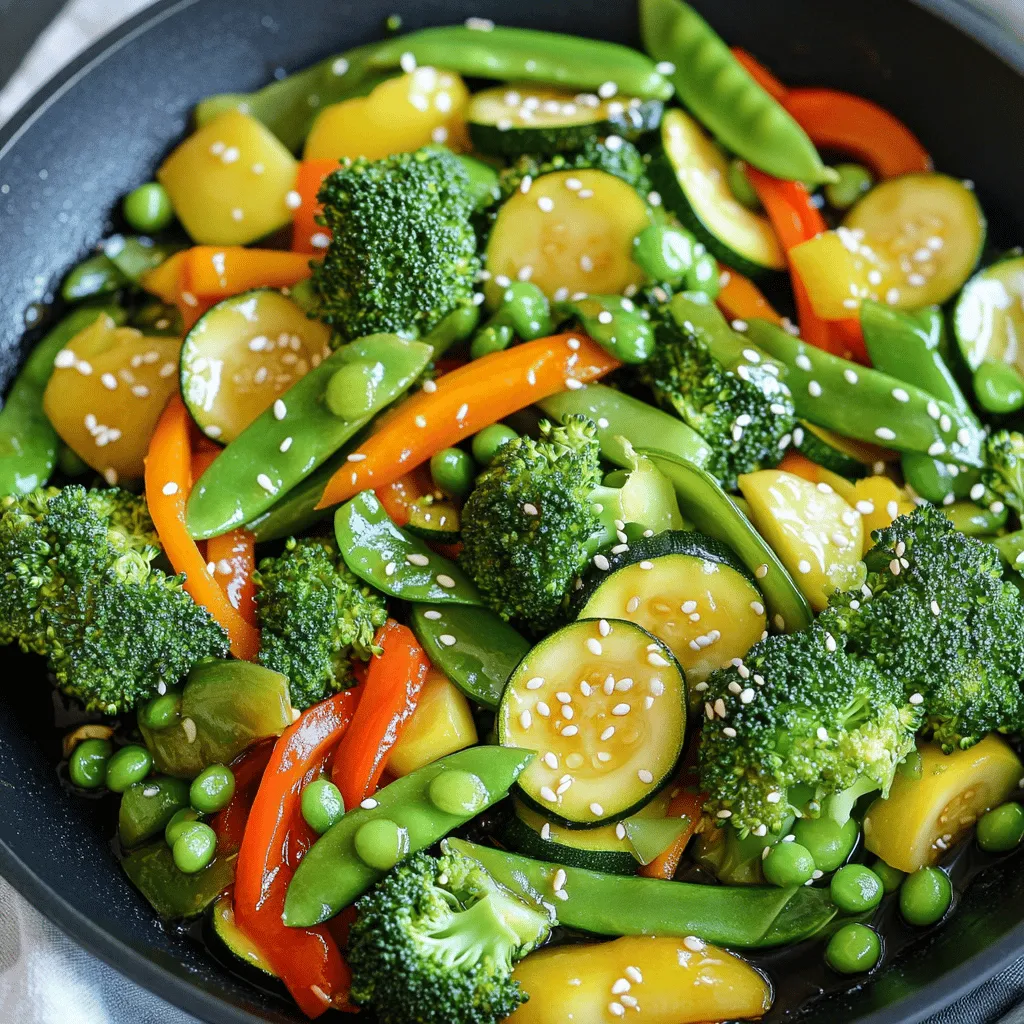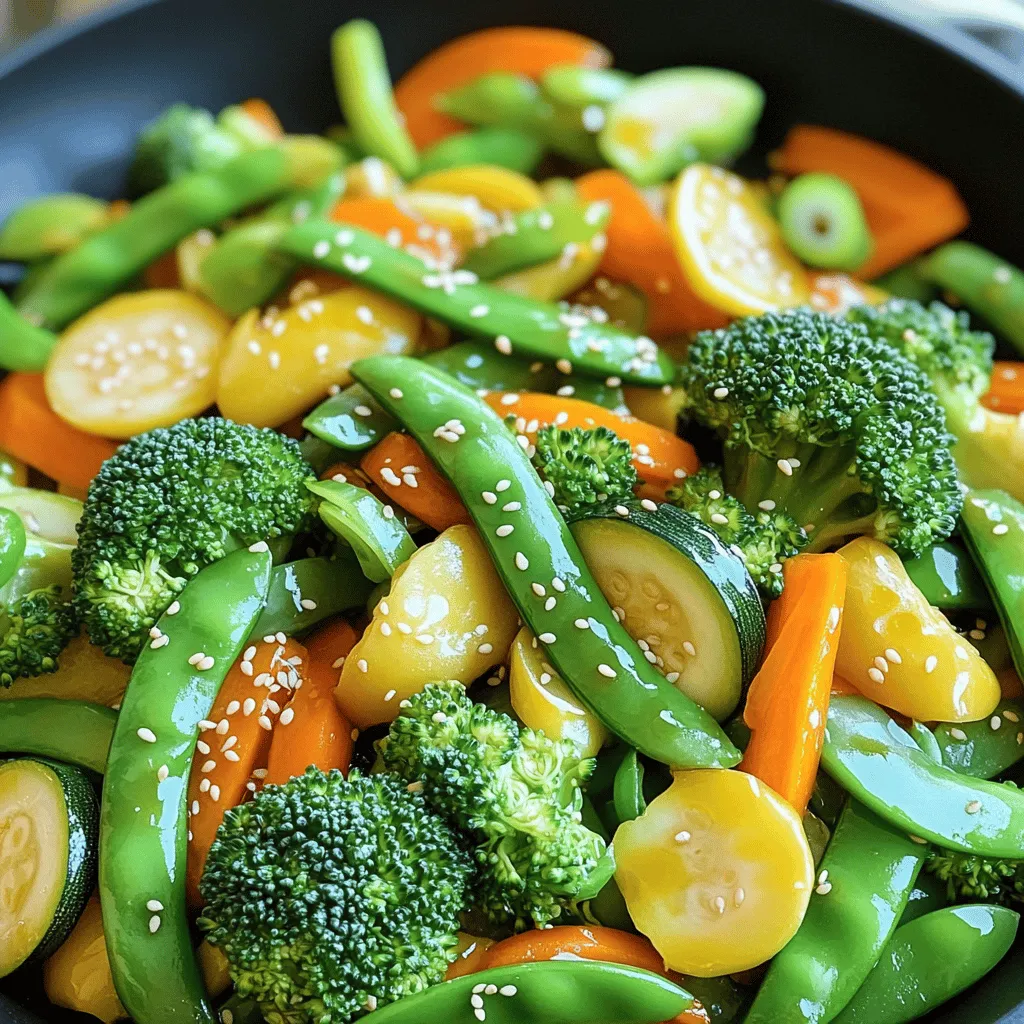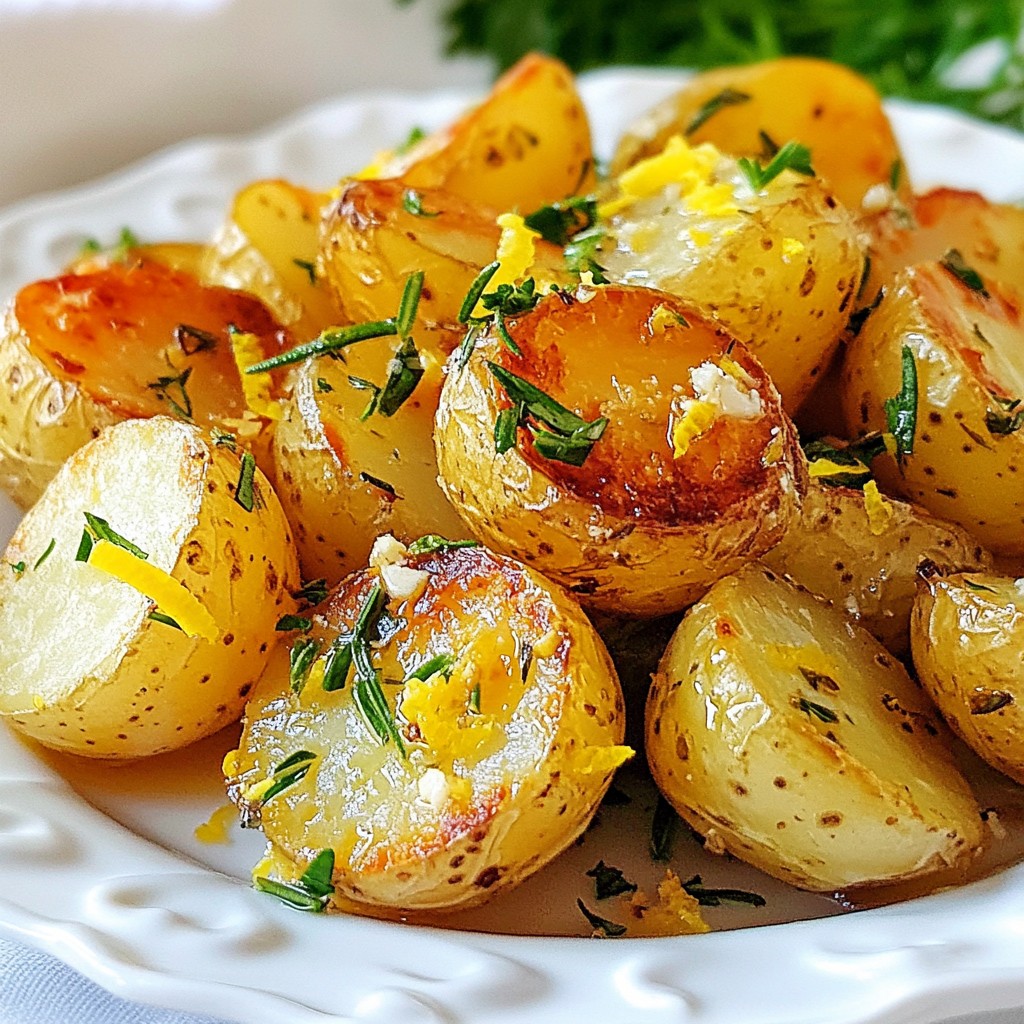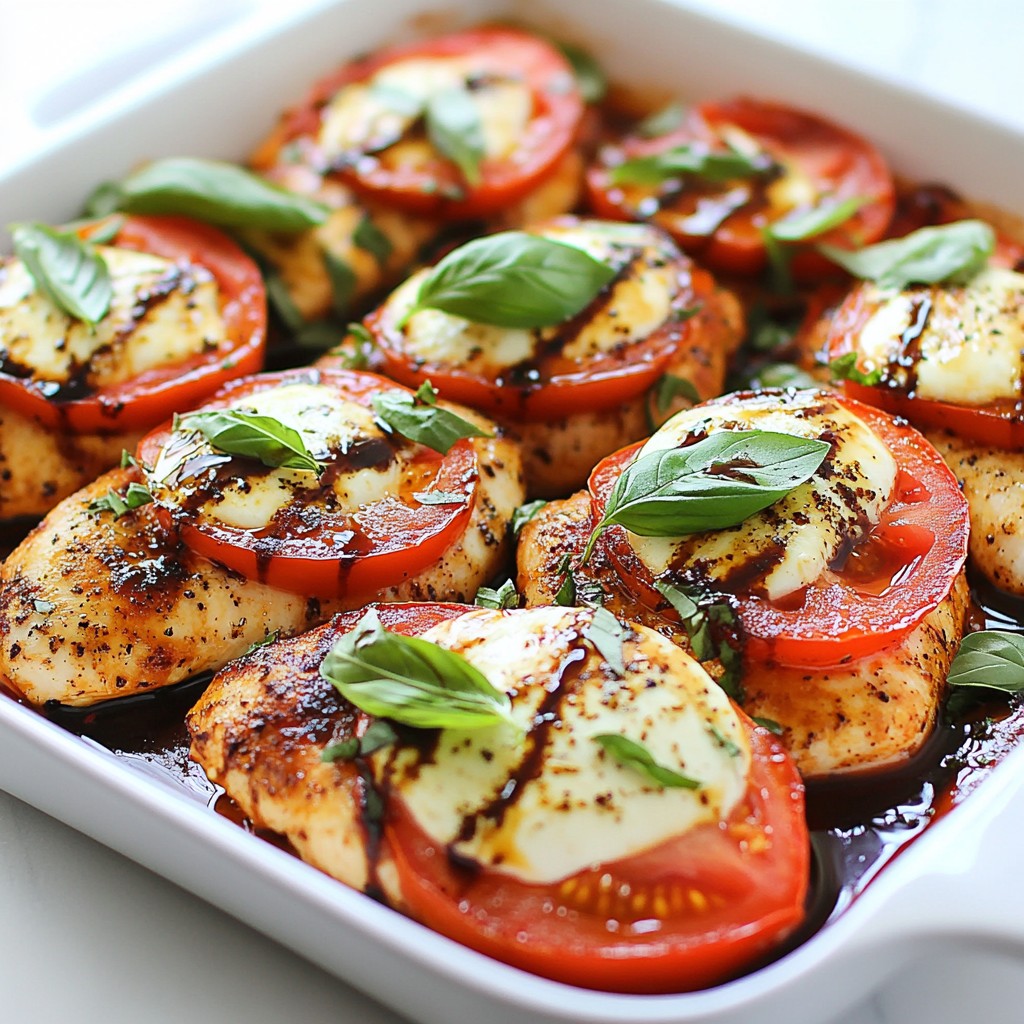Looking for a quick, healthy meal? You’ve come to the right place! My easy vegetable stir-fry is packed with flavor and can be whipped up in no time. With just a few fresh veggies, aromatic spices, and basic seasonings, you’ll create a dish that’s not only satisfying but also colorful. Discover how to make this delicious stir-fry, and enjoy dinner on the table in a flash!
Ingredients
When making an easy vegetable stir-fry, gather these fresh ingredients for the best flavor and texture.
List of Required Vegetables
– 1 cup broccoli florets
– 1 bell pepper (any color), sliced
– 1 cup snap peas
– 1 carrot, julienned
– 1 zucchini, sliced into half-moons
These vegetables add color and crunch to your dish. You can mix and match based on what you have.
Essential Aromatics
– 2 cloves garlic, minced
– 1-inch piece of ginger, grated
Garlic and ginger bring a bold flavor. They create a fragrant base for your stir-fry.
Cooking Oils and Seasonings
– 2 tablespoons soy sauce (low-sodium)
– 1 tablespoon sesame oil
– 1 tablespoon vegetable oil
– 1 tablespoon sesame seeds (for garnish)
– Salt and pepper to taste
These oils and seasonings enhance the taste. Soy sauce adds umami, while sesame oil gives a nutty finish.
Step-by-Step Instructions
Preparation of Vegetables
Rinsing your vegetables is key. Start by washing all the veggies under cold water. This clears off dirt and bacteria. For cutting, use a sharp knife. Cut the broccoli into small florets. Slice the bell pepper into strips. Julienning the carrot means cutting it into thin, matchstick pieces. Slice the zucchini into half-moons. Once done, set all the veggies aside.
Heating and Sautéing
Next, heat the oil in a large non-stick skillet or wok. Use medium-high heat until the oil shimmers. This shows it is hot enough for cooking. Add the minced garlic and grated ginger. Sauté them for about 30 seconds. You want to smell their fragrant aroma.
Cooking the Vegetables
Now it’s time to add the prepared vegetables. Toss in the broccoli, bell pepper, snap peas, carrot, and zucchini. Stir-fry them for about 5 to 7 minutes. The goal is to cook them until they are tender-crisp. They should still have some bite to them.
Adding Seasoning and Finishing Touches
Pour in the low-sodium soy sauce and sesame oil. Stir well to coat the vegetables evenly. This adds amazing flavor. Cook for an additional 1 to 2 minutes. Finally, season with salt and pepper to taste. Adjust to your liking.
Tips & Tricks
Achieving the Perfect Stir-Fry
To get a great stir-fry, you need high heat. Use a non-stick skillet or a wok for best results. Heat the pan until it shimmers. This lets the vegetables cook quickly and evenly.
Cutting Techniques for Uniform Cooking
Cut your vegetables into similar sizes. This helps them cook at the same rate. For example, slice bell peppers thinly and chop broccoli into small florets. Consistent sizes mean even cooking and delicious bites.
Timing for Crispness
Watch the time closely. Stir-fry the veggies for about 5 to 7 minutes. Look for a bright color and a slight crunch. If they look soft or brown, you may have overcooked them. Aim for that tender-crisp texture for the best flavor and bite.

Variations
Protein Add-ins
You can make your stir-fry heartier with protein. Tofu is a great choice. Firm tofu absorbs flavors well. First, press it to remove excess water. Then, cut it into cubes and sauté it until golden. Chicken is another option. Cut it into bite-sized pieces and cook it until no longer pink. Shrimp cooks fast and adds a sweet flavor. Toss in shrimp just before the vegetables finish cooking.
Flavor Enhancements
Want to spice up your dish? Try adding sauces or spices. Sriracha gives a nice heat. Hoisin sauce adds a sweet touch. You can also mix in some oyster sauce for depth. For a fresh twist, add a squeeze of lime juice or sprinkle some fresh herbs like cilantro or basil right before serving.
Seasonal Vegetable Swaps
Using seasonal vegetables can make your stir-fry even better. In spring, try asparagus and green beans. In summer, bell peppers and corn add sweetness. Autumn brings squash and Brussels sprouts, while winter is perfect for root vegetables like carrots and parsnips. Feel free to mix and match based on what you find fresh.
Storage Info
Refrigeration Guidelines
To keep your easy vegetable stir-fry fresh, store leftovers in an airtight container. Allow the stir-fry to cool first. This helps prevent condensation, which can make your veggies soggy. Place it in the fridge within two hours of cooking. Use the leftovers within three to four days for the best taste.
Freezing Options
You can freeze vegetable stir-fry for future meals. Start by letting it cool completely. Then, place the stir-fry in freezer-safe bags or containers. Squeeze out as much air as you can. This helps prevent freezer burn. When you’re ready to eat, thaw it overnight in the fridge. Reheat in a pan over medium heat until hot. Stir in a splash of soy sauce to refresh the flavors.
Shelf Life
For the best flavor and texture, eat your stored stir-fry within a week. If you freeze it, it can last up to three months. After that, the taste and quality may fade. Always check for off smells or colors before eating. Enjoy your colorful easy vegetable stir-fry!
FAQs
Can I use frozen vegetables for stir-fry?
Yes, you can use frozen vegetables for stir-fry. They are convenient and often pre-cut. Just remember, they may release more water. To avoid sogginess, cook them a bit longer. I recommend adding them straight from the freezer into a hot pan. This helps keep them crisp.
What is the best type of oil for stir-frying?
The best oils for stir-frying have a high smoke point. Good options include vegetable oil, canola oil, or peanut oil. These oils heat well without burning. I often use a mix of vegetable oil and sesame oil for flavor. This combo brings out the taste of the dish while keeping it healthy.
How can I make vegetable stir-fry spicier?
To spice up your stir-fry, add fresh chilies or red pepper flakes. You can also use spicy sauces like sriracha or chili garlic sauce. Start with a little, then taste and adjust. Adding ginger also gives a nice kick. Experiment to find your perfect heat level.
Are there any alternatives to soy sauce?
Yes, there are several alternatives to soy sauce. You can try tamari, which is gluten-free. Coconut aminos is another great option, with a sweeter flavor. If you want a low-sodium choice, look for low-sodium soy sauce. Each option can add a unique taste to your stir-fry.
How long does it take to make an easy vegetable stir-fry?
Making an easy vegetable stir-fry takes about 20 minutes. You will spend about 10 minutes prepping the vegetables. Cooking usually takes around 10 minutes. This quick time makes it perfect for busy days.
Making a delicious vegetable stir-fry is easy and fun. We covered the key ingredients, cooking steps, and tips for perfect results. Remember to choose fresh veggies and control your heat. You can also mix in proteins or different sauces for variety. Follow proper storage for leftovers to keep them fresh. Enjoy your cooking journey, and don’t hesitate to try new flavors! Your next meal will be both tasty and healthy.

.png)


